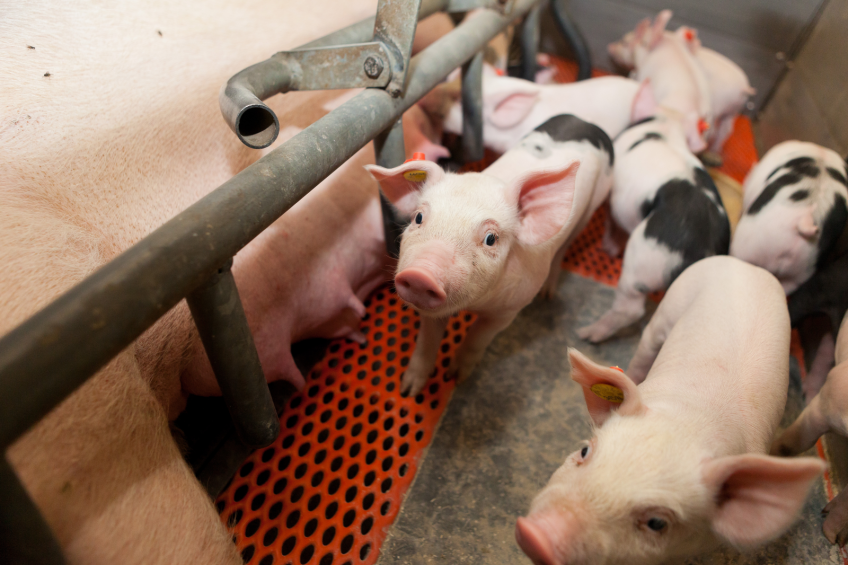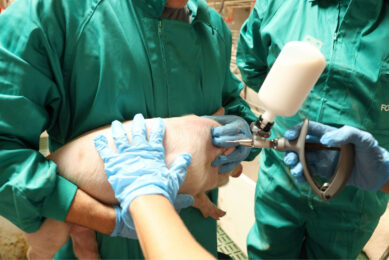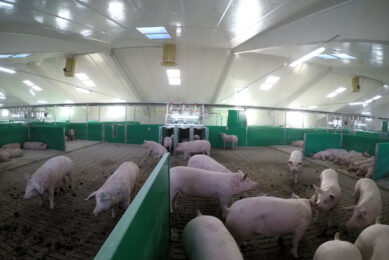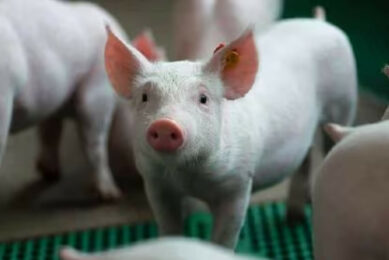Control of Torque Teno sus virus in pigs

Spanish scientists have demonstrated that Torque Teno sus virus (TTSuV) viraemia can be controlled by a combined DNA and protein immunisation during naturally occuring infection.
According to the scientists, both from the food and agriculture research organisation IRTA-CReSA as well as MSD Animal Health, it is the first time that the virus is controlled in such a way.
TTSuV infection in pigs is distributed worldwide, and is characterised by a persistent viraemia. TTSuV are small, non-enveloped viruses with a circular single-stranded DNA genome, belonging to the family Anelloviridae. Four species have been found to infect swine with high prevalence of TTSuV1a, TTSuV1b and TTSuVk2a species, while prevalence of TTSuVk2b is lower.
TTSuV infecting a high proportion of pigs
TTSuV persistently infects a high proportion of animals that are apparently healthy. Thus, infection by itself does not cause overt disease and therefore TTSuV by itself is not considered pathogenic. However, it is believed that TTSuVs can influence the development of some diseases or even affect their outcome.
In the present study, led by Dr Tuija Kekarainen, researcher from IRTA-CReSA, the impact of pig immunisation against TTSuVk2a was evaluated by following the specific seroconversion and the viral load dynamics during natural infection.
Priming three-week old conventional pigs
Three-week old conventional pigs were primed with a combined DNA and protein immunisation while another group served as unvaccinated control animals. Immunisation led to delayed onset of TTSuVk2a infection and at the end of the study when the animals were 15 weeks of age, a number of animals in the immunised group had cleared the TTSuVk2a viremia, which was not the case in the control group.
This study demonstrated for the first time that TTSuV viremia can be controlled by a combined DNA and protein immunisation, especially apparent two weeks after the first DNA immunisation, before seroconversion was observed. Further studies are needed to improve vaccine efficacy, to know the mechanism behind it, and to assess the impact for pig producers.
Real impact of TTSuV on pig health
The real impact of TTSuV, if any, on the pig health is still under debate. Although TTSuVs are currently considered non-pathogenic, it is hard to believe that a viral infection characterised by high viral loads and virus persistence would not have any consequences to its host.
The paper was published in Vaccine in July 2015 and has been authored by A. Jiménez-Melsió, F. Rodriguez, A. Darji, J. Segalés, V. Cornelissen-Keijsers, E. van den Born and T. Kekarainen.











